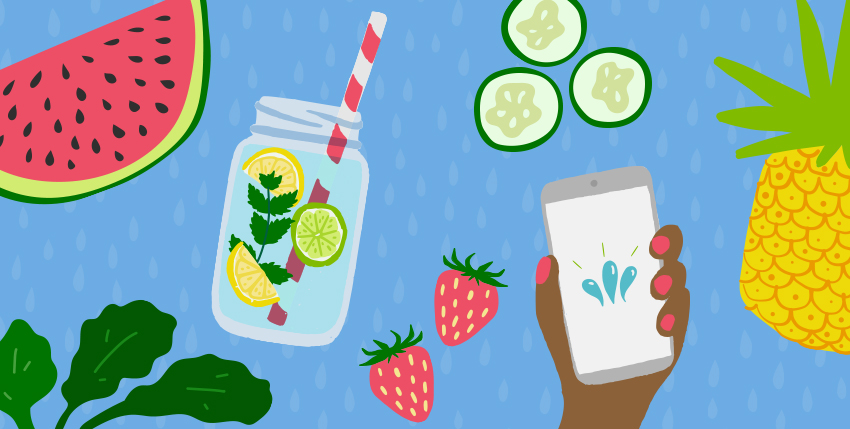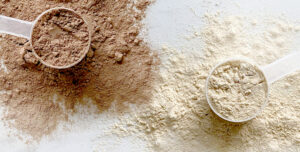National Hydration Day takes place every year on June 23rd in the United States.
Ever since National Hydration Day was created in 2016, the day has raised awareness about the importance of proper hydration and serves as a reminder to drink water and stay hydrated. While staying hydrated is important all year round, it’s even more important during the hot summer months.
Why Do We Need To Drink Water?
Well, for starters, up to 60% of the human adult body is water and humans must consume water each day in order to survive. Water is a vital nutrient to the life of every cell, and serves a number of essential functions that keep all of us going. Water regulates our internal body temperature (sweating and respiration), assists in flushing waste (mainly through urination), acts as a shock absorber for our brain and spinal cord, forms saliva, lubricates joints, and helps deliver oxygen all over our body. The carbohydrates and proteins that our bodies use as food are also metabolized and transported by water in the bloodstream. Therefore, if we’re dehydrated, which happens when we lose more fluids than we take in, our bodies can’t properly perform these functions.
Drinking water helps to maintain the balance of our body fluids, and also offers additional benefits, such as helping to keep our skin looking good, and maintain normal bowel function. cleanse and rid our
So, now that we know some reasons why we need to drink water, let’s take a look at six ways that we can stay hydrated.
6 Ways To Stay Hydrated
Don’t Wait Until You’re Thirsty To Drink: By the time you feel thirsty, you’re already slightly dehydrated. So, make sure to sip water steadily throughout the day. It’s also important to drink more fluids when the weather is hot, especially if you’re exercising outdoors in the heat.
Set Reminders To Regularly Hydrate During The Day: If you’re someone who gets caught up in work tasks or family activities, set reminders for yourself to drink water throughout the day. You can write notes to yourself, set alarms on your phone, or even download apps that remind you to drink a certain amount of water every day. Over time, this will probably develop into a healthy habit and you won’t even need the reminders anymore.
Make Sure That Your Water Tastes Good: Some people don’t drink plain water because they think that it tastes bland. If that’s the case, feel free to infuse a pitcher of water with fresh fruit or a splash of fruit juice. Hopefully, having a more flavorful beverage will help with your daily water intake.
Drink Fluids Other Than Water: If adding fruit or fruit juice to your water still isn’t doing it for you, try to consume clear broths, ice pops, or sports drinks, especially if you’re doing intense exercise. You can also drink milk, which has excellent hydrating properties and contains high concentrations of electrolytes, or coffee and tea. In moderate amounts, drinking coffee and tea can be as hydrating as drinking water. Just keep in mind that coffee and tea contain the stimulant caffeine, which can act like a diuretic and dehydrate you. So, try to limit the number of caffeinated drinks that you have.
Eat Hydrating Foods: While water is the best way to rehydrate your body, you can also up your fluid intake by consuming water-rich fruits and vegetables. In addition to healthful nutrients, fruits like watermelon, strawberries, and pineapples, and vegetables like cucumbers, leafy greens, and tomatoes, also have high water content. Meat also contains a high percentage of water with as much as 60%.
Be Aware Of The Signs And Symptoms Of Dehydration: If anyone in your family is not feeling well, make sure to pay attention to how much they’re able to drink, especially if they’re young or elderly. While you don’t want to wait for any signs of dehydration to appear, it’s important to know what they are. Some signs and symptoms of dehydration that you should be aware of are darker-than-usual urine, increased thirst, infrequent urination, dry mouth, fatigue, dizziness, dry skin, muscle cramps, fast heartbeat, headache, irritability, and confusion. It’s extremely important to avoid dehydration, especially when anyone is sick, as staying hydrated helps your body’s organs and muscles work properly.







